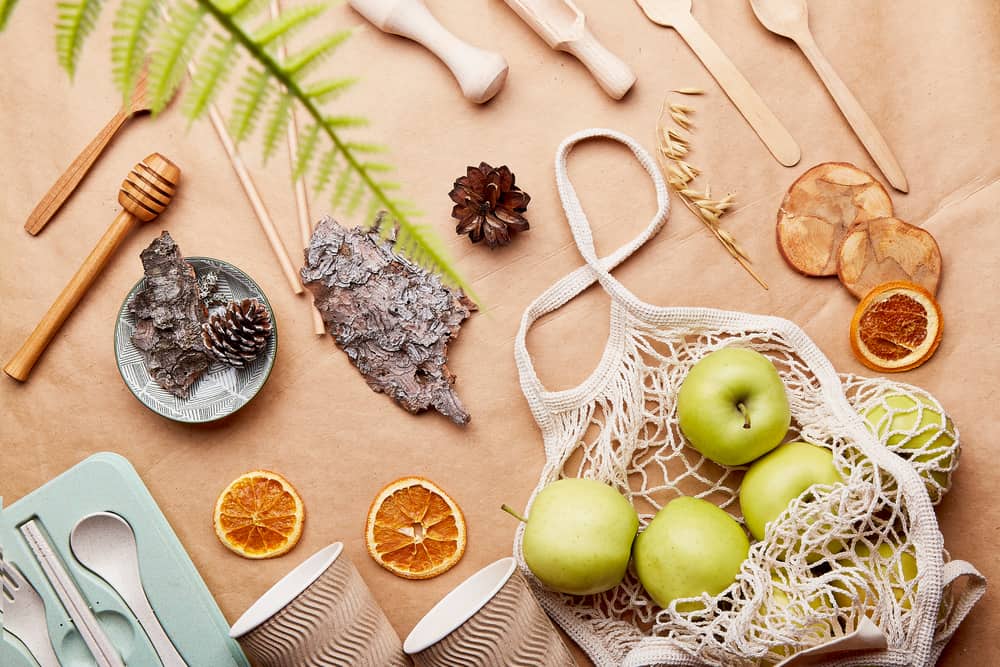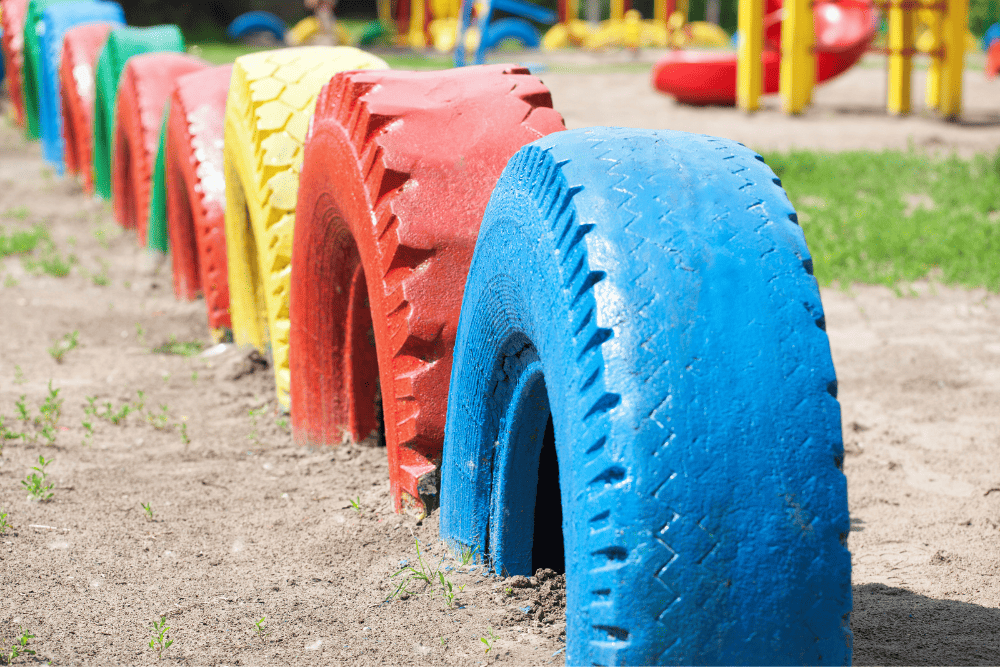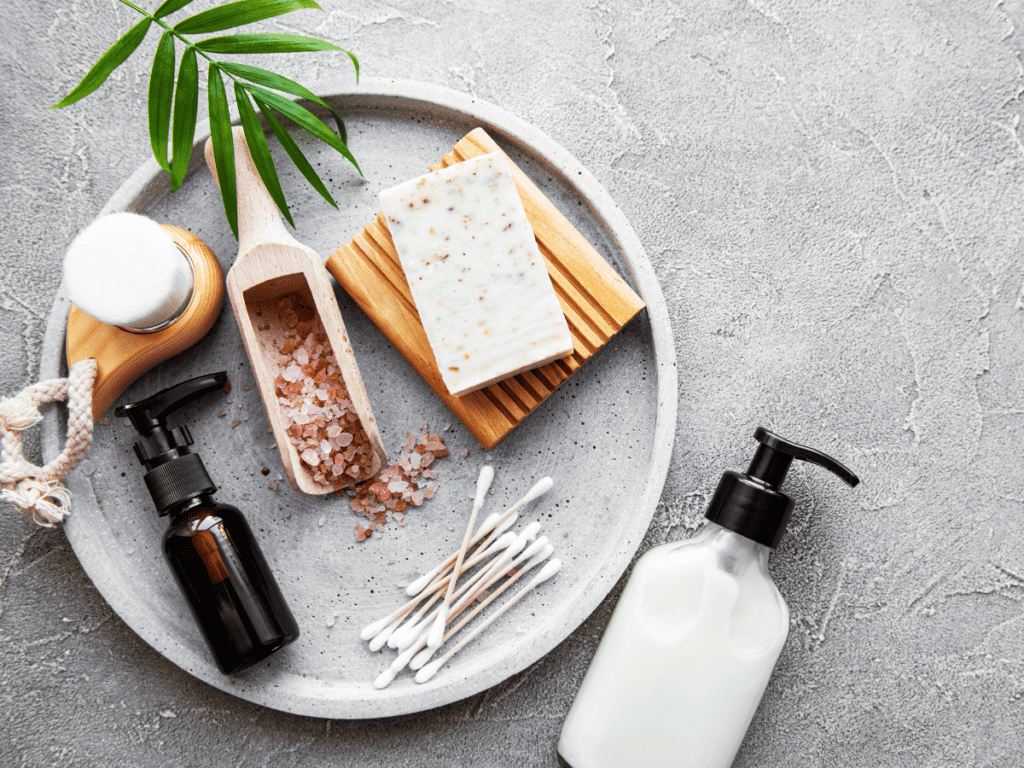If you’re reading this, chances are you’re interested in living a more eco-friendly lifestyle. And what better way to do that than by embracing a zero-waste lifestyle? Zero waste living is all about reducing the amount of waste we produce and reusing or recycling as much as possible. It’s not about being perfect but rather making small changes that add up to a big impact. So, if you’re ready to take the plunge, here are 25 simple ways to start zero-waste living.

Why Zero Waste Living Is Important
Before we dive into the tips, let’s take a moment to reflect on why zero-waste living is so important. Our planet is facing unprecedented challenges due to climate change, pollution, and resource depletion. By reducing our waste, we can help minimize our impact on the environment and preserve our planet for future generations. Zero waste living is also about living more mindfully and intentionally, which can lead to a happier and more fulfilling life. So, let’s get started on this journey together!
1. Avoid Single-Use Plastics
Single-use plastics are a major contributor to waste. Start by replacing plastic bags with reusable ones, using a refillable water bottle, and bringing your own containers for takeout and leftovers.
2. Compost Food Scraps
Instead of throwing food scraps in the trash, start a compost pile or use a compost bin. Composting not only reduces waste but also creates nutrient-rich soil for gardening.
3. Buy in Bulk
Buying in bulk reduces packaging waste. Look for stores that offer bulk bins for grains, nuts, and other dry goods. Bring your own containers to fill up and avoid the need for packaging altogether.
4. Choose Reusable Products
Replace disposable items with reusable alternatives. This includes items like cloth napkins, handkerchiefs, and menstrual cups.
5. Use Reusable Shopping Bags
Instead of using plastic or paper bags at the store, bring your own reusable bags. Keep them in your car or by the door so you don’t forget them.
6. Make Your Own Cleaning Products
Many commercial cleaning products come in plastic packaging and contain harmful chemicals. Make your own using simple ingredients like vinegar, baking soda, and essential oils.
7. Say No to Straws
Plastic straws are a major source of waste, especially in the hospitality industry. When you’re out, ask for your drink without a straw or bring your own reusable straw.
8. Choose Sustainable Packaging
When buying products, look for those with minimal or sustainable packaging. Avoid products with excessive plastic packaging or packaging that can’t be recycled.
9. Repair and Reuse
Instead of throwing away broken items, see if they can be repaired. Many items can be fixed with a little effort. You can start by mending clothes, restoring shoes, and refurbishing household items, saving you money and reducing waste.

10. Use Cloth Diapers
If you have a baby, consider using cloth diapers instead of disposable ones. Cloth diapers can be reused multiple times and are better for the environment.
11. Opt for Digital Subscriptions
Instead of receiving physical magazines, newspapers, and bills, opt for digital subscriptions. This reduces paper waste and clutter in your home.
12. Choose Eco-Friendly Transportation
Reduce your carbon footprint by walking, biking, or using public transportation whenever possible. If you need to drive, consider carpooling or using a fuel-efficient vehicle.
13. Buy Second-Hand
Instead of buying new items, look for second-hand options. This reduces the demand for new products and keeps items out of landfills.
14. Use a Reusable Coffee Cup
If you’re a coffee or tea drinker, bring your own reusable cup to the coffee shop. Many places offer discounts for using your own cup, and it reduces the need for disposable cups.
15. Use Reusable Containers
Instead of using disposable containers for food storage, invest in durable, reusable containers. These can be used for storing leftovers, packing lunches, and more.
16. Choose Reusable Utensils
Instead of using disposable utensils, opt for reusable ones made from materials like bamboo or stainless steel. Keep a set in your bag or at your desk for times when you’re on the go.
17. Make Your Own Beauty Products
Many beauty products come in plastic packaging and contain harmful chemicals. Make your own using natural ingredients like coconut oil, shea butter, and essential oils.

18. Reduce Paper Towel Use
Instead of using paper towels, use cloth towels or rags for cleaning up spills and messes. You can also use cloth napkins instead of paper ones.
19. Use a Reusable Water Filter
Instead of buying bottled water, invest in a reusable water filter. This reduces the need for single-use plastic bottles and saves you money in the long run.
20. Choose Sustainable Clothing
When buying clothes, look for sustainable and eco-friendly options. This includes clothing made from organic cotton, hemp, and other natural fibers.
21. Reduce Food Waste
Plan your meals and buy only what you need. Use up leftovers and get creative with ingredients to reduce food waste.
22. Use a Reusable Lunch Bag
Instead of using disposable bags or containers for your lunch, use a reusable lunch bag or bento box. This reduces waste and keeps your food fresh.
23. Choose Eco-Friendly Cleaning Products
Many commercial cleaning products contain harmful chemicals and come in plastic packaging. Look for eco-friendly alternatives that use natural ingredients and come in recyclable packaging.
24. Support Zero-Waste Businesses
Look for businesses that are committed to reducing waste and supporting sustainable practices. This includes local farmers’ markets, zero-waste stores, and eco-friendly brands.
25. Educate Others
Share your knowledge and experiences with others. Encourage friends and family to make small changes in their own lives to reduce waste.
Wrapping Up
These are just a few ways to start living a zero-waste lifestyle. Remember, every little bit helps, so don’t be discouraged if you can’t do everything at once. Just take it one step at a time and do what you can to reduce your waste.